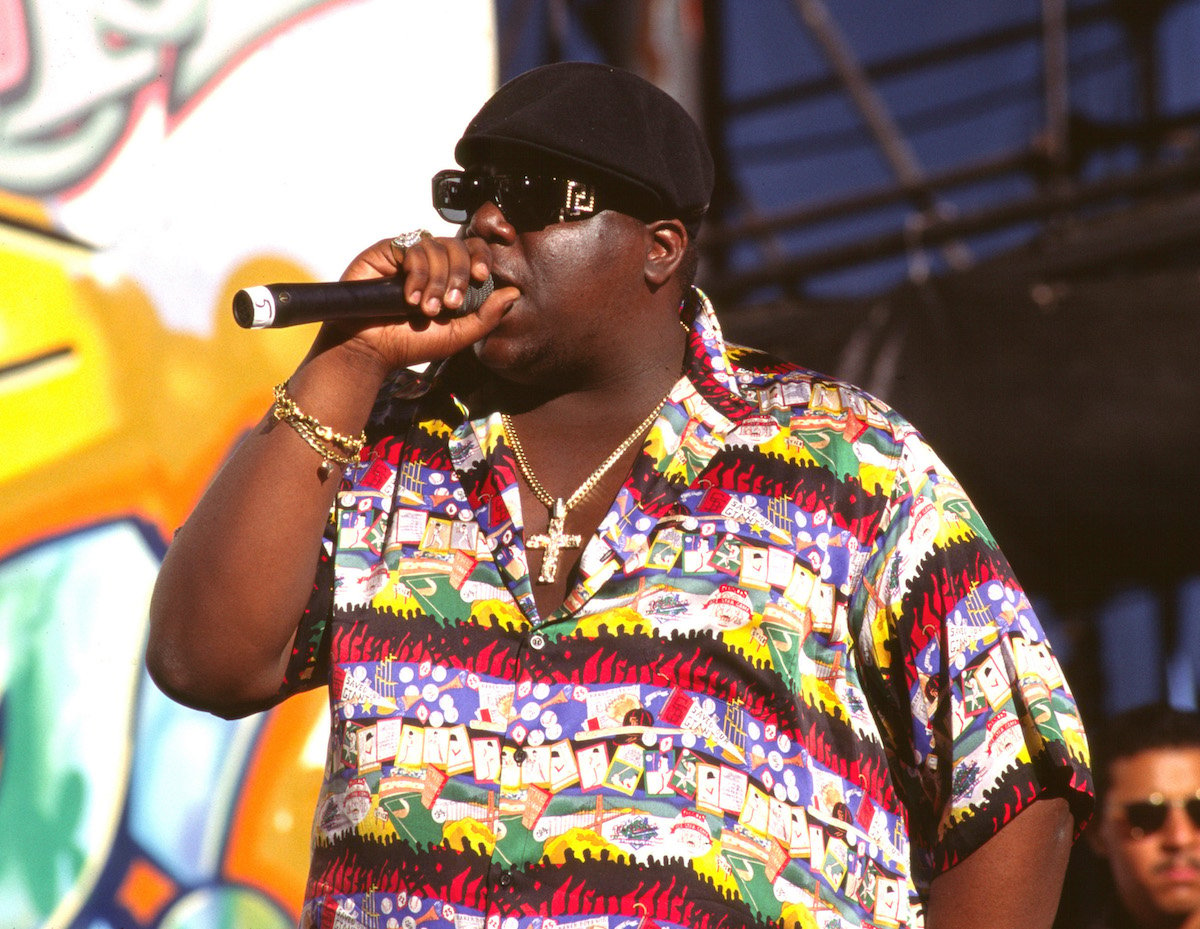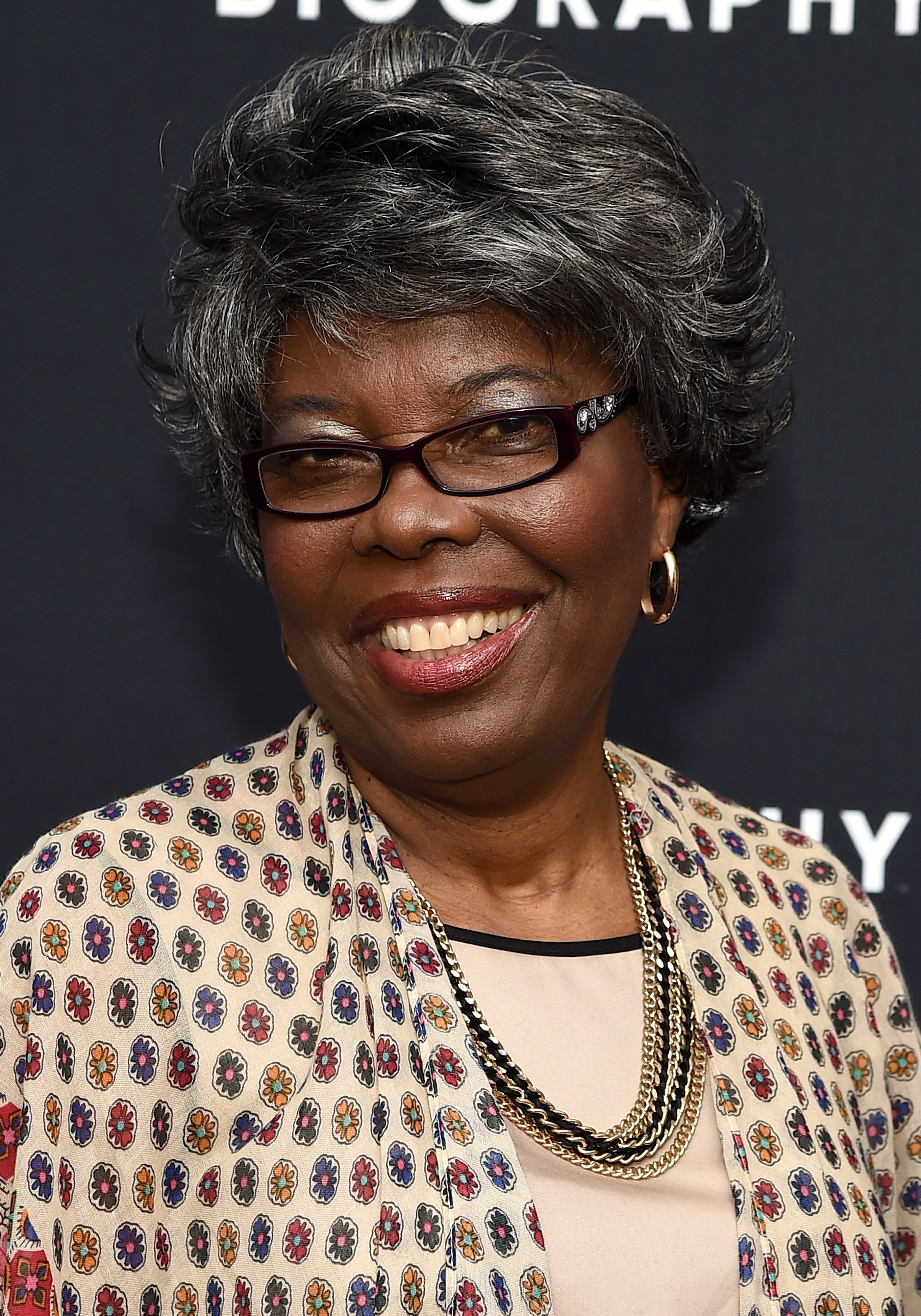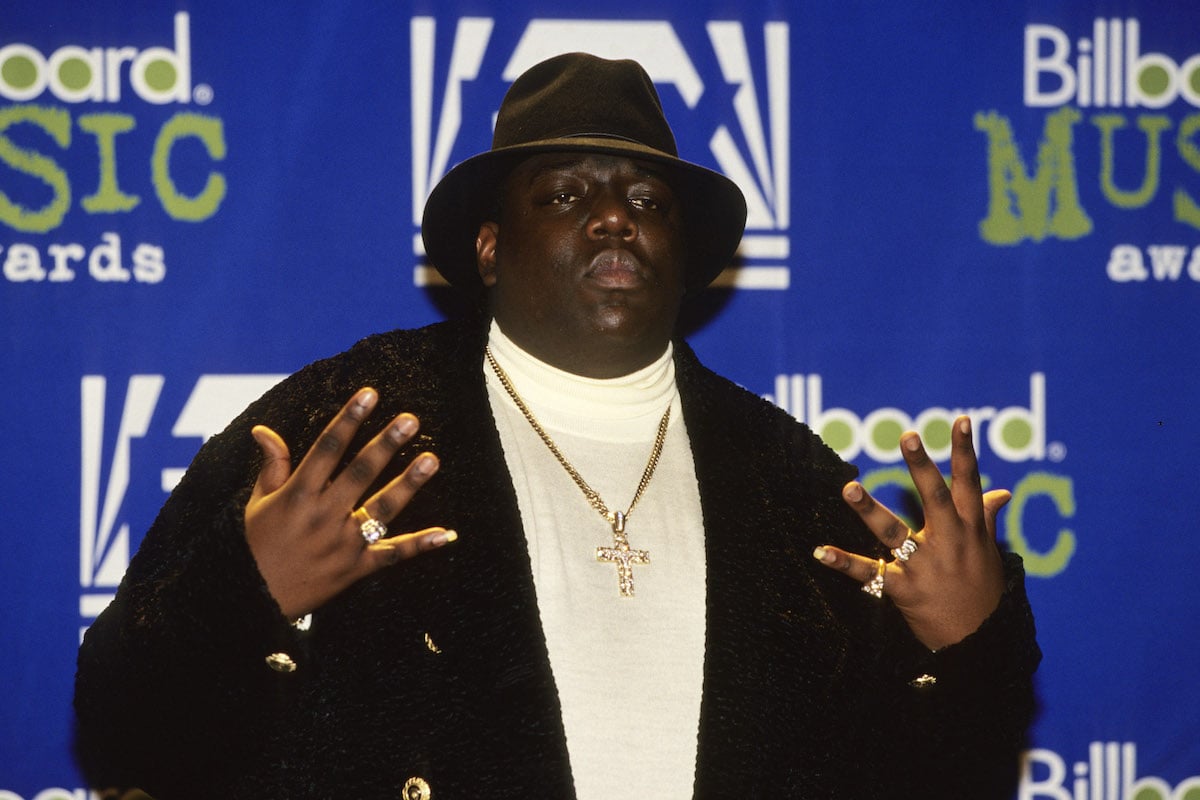The Notorious B.I.G.’s Jamaican Roots Helped His Career in a Big Way
Biggie Smalls, a.k.a. The Notorious B.I.G., remains one of music’s most influential rappers. The legendary artist was at the forefront of the infamous East Coast vs. West Coast hip-hop feud in the 1990s and changed many rules of rap that other artists hadn’t dared to touch. As the child of Jamaican immigrants, Biggie also represented the melting pot that is New York City.

Biggie Smalls’ parents
Biggie Smalls — also known by his government name, Christopher Wallace — was born in Brooklyn in 1972 to Jamaican immigrant parents, Voletta Wallace and Selwyn George Latore. His father left when he was two years old, and he was raised by his mother on the edge of the rough neighborhood of Bedford-Stuyvesant.
Wallace immigrated to the United States when she was sixteen years old after seeing the limited options she had for herself in Jamaica. She came from the town of Trelawny, and often took Biggie back home to see the rest of his family and where his parents came from.
On those visits, Biggie would spend time with Wallace’s musician brothers, Dave and Lou. he would link up with her musician brothers, Dave and Lou. “I remember Lou trying to teach him how to play guitar while Dave would be the singer. At the time, I didn’t know anything about rap and I doubt Christopher did either,” Wallace told Entertainment Weekly in 2021. “When they were together, they were always playing their reggae music. He really got a kick out of that and looked forward to those moments.”

Biggie Smalls’ Jamaican roots
Biggie gave a nod to his Jamaican heritage several times in his music. He appeared on a remix of dancehall legend Super Cat’s 1993 track “Dolly My Baby,” rapping, “Me cyan tek it no more” in a typical patois. But Biggie was a New York by birth and by heart, and took the most pride in that identity.
In the 2021 Netflix documentary Biggie: I Got a Story to Tell, one of Biggie’s producers on his iconic Ready to Die album, Mister Cee, said that he didn’t connect with his family origins consciously, but subconsciously.
“I don’t even know if Big really understood his Jamaican roots,” Mister Cee said. “The history of Jamaican DJs, from what was called ‘chatting’ on the mic — the braggadocious mic presence was important, and Big had that. That’s what set him different from some of the other street rappers was that mic presence.”

Biggie Smalls loved Jamaica
Of course, Biggie had a soft spot for his mother’s home country, especially when he visited as a child.
“I would save up money every year to take my son and myself to Jamaica,” Ms. Wallace said in the documentary. “He loved Jamaica, because they spoiled him rotten.”
His 96-year-old grandmother Gwendolyn concurred, adding that she could see he would be successful as he got older. “I knew Chris would be special,” she said. “He was loving, kind, [and] genuine.”


